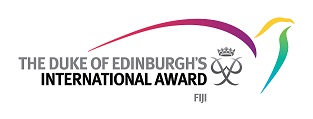DUKE OF EDINBURGH'S INTERNATIONAL AWARD

DUKE OF EDINBURGH'S INTERNATIONAL AWARD
HISTORY OF THE AWARD
The Duke of Edinburgh Award Scheme was founded in Great Britain. The Duke of Edinburgh’s International Award grew out of the efforts of three men – HRH Prince Philip, Kurt Hahn, a German educationalist and Lord Hunt, leader of the first successful ascent of Everest – who were aware that young people’s development was lacking in certain key areas. The post war era was an effort to address the growing concerns the Nation had for its young population. The ravages of a World War had demoralized the spirits of its young people, self-esteem was low and motivational empowerment programs were scarce.
Together, the Duke of Edinburgh with other great men of his era painstakingly developed a programme that would remedy the growing concerns a nation had for its greatest asset.
In 1956 the programme was launched, adopting the name of its founder, the Duke of Edinburgh’s Award programme.
GENERAL INFORMATION ABOUT THE AWARD
The Award Programme
The Award concept is one of individual challenge. It presents to young people a balanced, non-competitive programme of voluntary activities which encourages personal discovery and growth, self-reliance, perseverance, responsibility to themselves and service to their community. The Award is an international programme recognized and used by organisations working with young people throughout the world.
SLOGAN: “The Duke of Edinburgh’s International Award is the world’s leading youth achievement award”
The Fundamental Principles
- The criterion for gaining an Award is individual improvement through persistence and achievement, taking into account the participant’s initial capabilities and without any element of competition between participants.
- Participation is entirely voluntary and the individual participant has completely free choice in the selection of locally available options within the four Sections.
- The Award is fully inclusive of all young Fijians.
The Operational Principles
- Participants must be between the ages of 14 and 24.
- The basic structure of the Award programme consists of four mandatory Sections: Service, Skills, Physical Recreation and Adventurous Journey.
- The three (3) levels of the Award are: Bronze (for those over the age of 14), Silver (for those over the age of 15) and Gold (for those over the age of 16).
- The minimum period of participation for direct entrants to qualify for an Award is six months for Bronze, 12 months for Silver and 18 months for Gold.
- At Gold level participants undertake a Residential Project (to broaden experience through involvement with others in a residential setting) away from home.
Code of Practice
- To maintain comparable standards of operating practice as advised by The Duke of Edinburgh’s International Award Foundation’s staff.
- To manage the Award is freely available to all young people of the appropriate ages, regardless of their gender, race, religion, political affiliation or any other personal circumstances.
Levels of the Award and Timescales of the Activities
To complete the Award, the DEIA participants will have to stick to the following time requirements:
Note:
Activities are done concurrently provided within the required period of time.
On completion of the Award, participants each receive an internationally recognized certificate endorsed by The Duke of Edinburgh and a pin badge.
Today, over 8 million young people all over the world have participated in the Award Programme in over 130 countries.
So, challenge yourself and join into this programme!
Click here to visit the International Site
"Please find the links below to Register Online"
Press Releases
Speeches
- MINISTRY OF YOUTH AND SPORTS-2023 INTERNATIONAL YOUTH DAY
- Official Address at the Closing of the Training on Caregiving and SRHR held at Natalecake Village Hall, Ba
- Official Address for the Vuvale Sports Day held at Albert Park, Suva
- Official Address at the Gym Equipment Handover Ceremony held at Namoli Village, Lautoka
- Chief Guest at the Duke of Edinburgh International Award Program, Albert Park Hall, Suva


